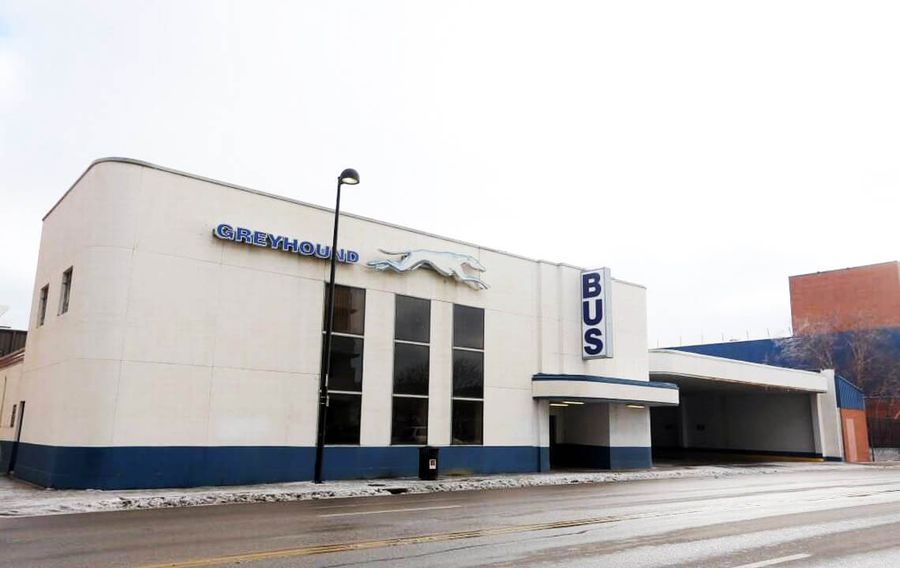
By Dion Lefler and Chance Swaim
October 03, 2018 06:38 PM,
Updated October 04, 2018 11:09 AM
A loophole in Kansas law has allowed a murderer serving a life sentence to file bogus deeds, claiming ownership of properties including the defunct Joyland amusement park, the former Greyhound bus station and the Wellness Center veterans home, Sedgwick County officials said.
And there’s little anyone can do about it.
The state law at issue requires the county Register of Deeds to immediately file all documents submitted, as long as the papers follow the proper form and appear to be legally notarized, said Sedgwick County Register of Deeds Tonya Buckingham and County Clerk Kelly Arnold.
There are just too many ways people can do fraudulent documents. Our hands are tied (by state law). We have to file the document if it’s signed and it’s notarized and there’s a date on it.
Once a phony deed is on file, the person who filed it could use it to borrow money and guarantee the loan using the property as collateral, Buckingham said.
“In theory, someone could do this, transfer the deed, and you would never know,” Arnold said. “The tax bill stops coming and a few years later the sheriff shows up and says your home’s going up for auction.”
The only way to get a deed corrected and the proper owner back into the county records is for the legitimate owner to hire a lawyer, go to court and get a judge’s order, Buckingham said.
When it happens, there’s no penalty for filing the falsified deed, Buckingham said.
“There should be,” Buckingham said. “I wish there was some kind of law in place where they would at least have to pay the attorneys’ fees and going to court and doing all that.”
In the current case, punishment would seem more or less moot anyway, because the person who created the company that filed the fake deeds, Anthony Kelley-El, is already serving a life term at the state prison in El Dorado for a 1988 murder, records show.
Buckingham and Arnold said they plan to ask the Legislature to rewrite the law and add some safeguards when lawmakers convene for their annual session in Topeka in January.
In the meantime, there is no way to lock down deeds for your home or business to prevent tampering by outsiders, although there is a system to get notified of any changes if they happen.
Buckingham said she established the Property Alert System almost two years ago after reading reports on deed stealing in other states. You can sign up for notification at the Register of Deeds Web site, www.sedgwickcounty.org/register-of-deeds.
In 2011, Kelley-El created a shell corporation through the Secretary of State’s office called Moorish America, Inc.
Starting last year, he apparently cut-and-pasted and whited out pieces from various documents, including notary stamps, creating deeds purporting to show that the owners of properties had transferred ownership to Moorish America, Buckingham said.
“Moorish” groups across the country have gained attention for tax fraud.
In Chicago, more than 30 properties were fraudulently transferred to a Moorish group. In Charlotte, a Moorish group began seizing foreclosed property with bogus property deeds.
Three recent high-profile deed transfers tipped off County Clerk Kelly Arnold’s office to Kelley-El’s activities.
In addition to the Joyland property and the vacant bus depot, Moorish America also claimed ownership of Wellness Place, a veterans’ home in Wichita, and a private home.
The Joyland deed transfer came across Arnold’s desk around November of last year.
The first thing that raised red flags was that it came from El Dorado Correctional Facility. The second was that the Joyland listed on the deed transfer in Sedgwick County was a Joyland Amusement Park located in Lubbock, Texas, Arnold said.
“We asked the owners of Joyland in Wichita if they had transferred the deed to their property and they had no idea what we were talking about,” Arnold said.
Arnold said although he and the Sedgwick County Register of Deeds suspected the documents were fraudulent, they still had to process them.
“As long as it’s properly formatted, with a grantor and a grantee, a signator and notary, by law, we have to record it as if it’s a legitimate deed transfer,” Arnold said.
Joyland is set to go to auction next month. McCurdy Auctions executives handling the sale did not respond to requests for comment.
The transfers of Kelley-El claimed properties in Sedgwick County have been “paused” according to the County Clerk’s Office.
Arnold said he “feels handcuffed,” because, legally, his office has to record the suspected fraudulent deed transfers. He said his office can, and does, turn suspected fraudulent transfers to the sheriff’s office to investigate.
But it ultimately falls on the lawful owner of the property to challenge a deed transfer.
“We’re asking the Legislature to give us the tools and opportunity to at least go to the original owners of the property and check,” Arnold said.
Kansas Department of Corrections Chief of Staff Samir Arif confirmed that the deed fraud case is being investigated, although he declined to name the prisoner.
“There are offenders with nothing to lose who are always looking for a way they can to manipulate the system,” he said.
Arif said prisoners’ access to the internet is limited to training and educational programs. .
Some prisoners in Kansas do have access to email, but all incoming and outgoing emails must include a “digital stamp.”
These emails go through a “mail room” run by prison staff and are treated the same way as paper mail, he said.
Link: https://www.kansas.com/news/local/crime/article219457015.html